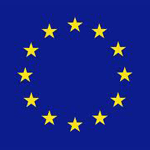EU ministers approve of law for banning genetically modified crops
- Like
- Digg
- Del
- Tumblr
- VKontakte
- Buffer
- Love This
- Odnoklassniki
- Meneame
- Blogger
- Amazon
- Yahoo Mail
- Gmail
- AOL
- Newsvine
- HackerNews
- Evernote
- MySpace
- Mail.ru
- Viadeo
- Line
- Comments
- Yummly
- SMS
- Viber
- Telegram
- Subscribe
- Skype
- Facebook Messenger
- Kakao
- LiveJournal
- Yammer
- Edgar
- Fintel
- Mix
- Instapaper
- Copy Link
Posted: 18 November 2014 | The European Parliament and Council | No comments yet
EU politicians have backed a plan to allow nations to ban genetically modified crops on their soil, even if they are given approval to be grown in the European Union, raising the chance their use will remain limited on the continent…


EU politicians have backed a plan to allow nations to ban genetically modified crops on their soil, even if they are given approval to be grown in the European Union, raising the chance their use will remain limited on the continent.
Widely grown in the Americas and Asia, GM crops in Europe have divided opinion. While Britain favours them, there is strong opposition in many countries including France and Germany. A previous compromise endorsed this year by EU ministers would have required negotiation with the relevant companies if a nation wanted to ban a GM crop in the event it had been approved for EU-wide use.
The plan, voted through parliament on Tuesday 11 November would leave out that stage and allows member states to ban GM crops on environmental grounds. It drew praise from GM opponents. Greenpeace EU agriculture policy director, Marco Contiero, commented: “The vote would give European countries a legally solid right to ban GM cultivation in their territory, making it difficult for the biotech industry to challenge such bans in court.”
Left-leaning politicians also welcomed the vote which kicks off formal negotiations on a legal text, saying it strengthened the grounds for opting out of any GM cultivation.
Conservatives were opposed.
Julie Girling, Environment Spokeswoman for the Conservative Party in European Parliament, said: “The parliament’s position on GM cultivation risks inflicting untold damage to robust, science-based policymaking in Europe. We strongly oppose these proposals and voted against them today. We will continue to oppose them.”
The executive European Commission said in a statement that it was confident the law could be in place in 2015, once it had received final endorsement from the European Parliament and member states.
GM cultivation has provoked opposition in Europe for years. An earlier attempt to agree a compromise on GM cultivation failed in 2012, when EU ministers were unable to agree. So far, EU authorities have approved only two GM crops for commercial cultivation, and one was later blocked by a court.
The only GM crop currently grown in Europe is Monsanto’s GM maize MON810, which has been cultivated in Spain and Portugal for a decade.





